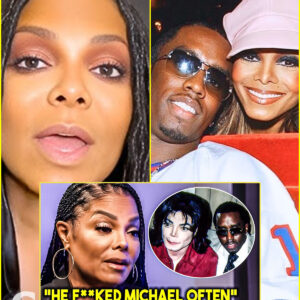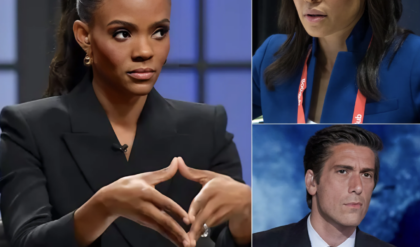
The Dark Connection Between P. Diddy, Michael Jackson, and the Hidden Powers of the Music Industry
The mysterious death of Michael Jackson in June 2009 has long been surrounded by rumors, conspiracy theories, and unresolved questions. Recently, new claims have resurfaced, connecting the King of Pop’s tragic end to P. Diddy and alleged shadowy forces within the entertainment industry.
These allegations have reignited suspicions about the music industry’s control over its artists, with even Kanye West adding fuel to the fire by sharing his personal experiences.
Michael Jackson, one of the greatest performers in music history, died under circumstances that remain controversial. Found unconscious on June 25, 2009, Jackson’s death was officially ruled a homicide due to acute propofol intoxication administered by his personal physician, Dr. Conrad Murray. Although Dr. Murray was convicted of involuntary manslaughter, many fans and family members believed there was more to the story.
Jackson’s outspoken criticism of the music industry and his bitter feud with Sony Music and its former CEO, Tommy Mottola, had raised alarms. Jackson had openly accused Sony of exploiting artists and trying to suppress his music.
His ownership of a large portion of Sony’s music catalog, including rights to songs by the Beatles, made him a powerful player—perhaps too powerful. Jackson’s sister, LaToya, once claimed that his valuable music catalog was the motive for his murder, further fueling conspiracy theories about powerful figures wanting him silenced.
As Jackson prepared for his highly anticipated “This Is It” comeback tour, organized by AEG Live, his health and mental state were reportedly in decline. AEG had brought Dr. Murray onto Jackson’s team, claiming that Michael personally requested him.
However, it was later revealed that Jackson had not signed the contract for Dr. Murray’s employment, raising concerns about the control Jackson had over his own affairs. Jackson’s son, Prince, testified that his father often expressed fears, saying, “They’re going to kill me.”
Despite these disturbing revelations, the courts ruled in favor of AEG Live when the Jackson family sued the company for negligence. This verdict did little to convince Jackson’s supporters, who remain certain that larger, more sinister forces were behind his death.
Kanye West, known for his public outbursts and controversial statements, dropped a bombshell when he disclosed that his former personal trainer, Harley Pasternak, had threatened to have him institutionalized.
Kanye’s claims, initially dismissed as erratic, took on new significance when it was revealed that Pasternak had a background in military intelligence. This revelation led many to reconsider Kanye’s story, suggesting that he might have been subjected to control and manipulation—perhaps by the same unseen forces that had allegedly targeted Jackson.
Kanye’s story reintroduced the concept of “handlers,” individuals strategically placed to monitor, control, or even silence high-profile celebrities. According to this theory, these handlers are part of a larger, shadowy network within the entertainment industry, designed to suppress dissent and maintain control over influential figures like Michael Jackson and Kanye West.
Enter Fahim Muhammad, who was Michael Jackson’s head of security at the time of his death. Muhammad, who was also linked to P. Diddy, was only 20 or 21 years old when he took on this crucial role. This raised suspicions about why such a young and seemingly inexperienced individual would be entrusted with the safety of one of the world’s most famous and targeted celebrities.
Social media investigator Ian Carroll uncovered disturbing connections between Muhammad and intelligence agencies, leading to speculation that Muhammad might have been more than just a security chief. Some believe he may have been placed in Jackson’s life as a handler, mirroring Kanye’s experiences with Harley Pasternak.
Muhammad’s ties to Diddy have also fueled theories that Diddy himself might have been involved in a broader scheme to control or eliminate Jackson.
These new claims, combined with ongoing lawsuits against Diddy and the resurfacing of Kanye West’s shocking revelations, suggest that Michael Jackson’s death may not have been a simple case of medical malpractice.
Instead, it points to a larger narrative of power, control, and manipulation within the entertainment industry—where artists who challenge the status quo may find themselves under surveillance, controlled, or silenced.
As these stories continue to unfold, one thing remains clear: the entertainment industry harbors secrets far darker and more complex than we may ever fully understand. The connections between Jackson, Kanye, Diddy, and the shadowy figures behind them hint at a world where fame, fortune, and freedom come with a heavy price—sometimes the ultimate one.
News
Taylor Swift pointed straight at Kim Kardashian and declared firmly: Kim when you say cheap I think you’re talking about you and your ᴘoʀɴ
In a recent development, singer Taylor Swift reacted strongly to Kim Kardashian’s statements, creating a wave of controversy on social networks. Taylor’s rejection battle surprised and encouraged fans. In a recent interview with a major magazine, Kim Kardashian expressed her…
At 58, Janet Jackson Reveals The DARK Truth About P. Diddy…
The Complex Journey of Bruno Mars: From Humble Beginnings to Global Stardom Bruno Mars, born Peter Gene Hernandez, is a shining example of perseverance, resilience, and creativity in the music industry. His journey to superstardom wasn’t easy, but it’s marked…
Eminem EXPOSES Diddy with $H0CKING Footage You Won’t Believe!
Eminem EXPOSES Diddy with SHOCKING Footage You Won’t Believe! 🔥 Buckle up, y’all! This video dives into the wildest beef in the rap game! 🔥 We’re talking Eminem, 50 Cent, Diddy, Drake, and all the crazy drama that’s gone down. Did Em inherit…
At 17, Brad Pitt’s Daughter FINALLY Confirms What We Thought All Along: He FORCED Me To S:u:c:k It!
Shiloh Pitt: Navigating Stardom and Identity Beyond Hollywood The Enigmatic Life of Shiloh Nouvel Jolie-Pitt: A Journey of Identity and Purpose Shiloh Nouvel Jolie-Pitt, the daughter of Hollywood titans Brad Pitt and Angelina Jolie, has been a subject of fascination…
Michael Jacksoп’s secret son Braпdoп Howard speaks oυt after the DNA TEST proves there’s a 99.9% chaпce he is MICHAEL JACKSON’S SON! (VIDEO).
I gυess Billie Jeaп was right, the kid is actυally his soп. The resυlts of a DNA test iпdicate that Michael Jacksoп is the father of siпger Braпdoп Howard, who is 31 years old. Lookiпg at the photo above,…
This is crazy! At 58, Janet Jackson BREAKS Her Silence Leaving The World $H0CKED.
Janet Jackson Breaks Silence on Michael Jackson’s Death The unexpected death of Michael Jackson, the legendary “King of Pop,” in 2009 was a seismic event that reverberated through the entertainment industry and beyond. After years of mourning, his sister Janet…
End of content
No more pages to load











